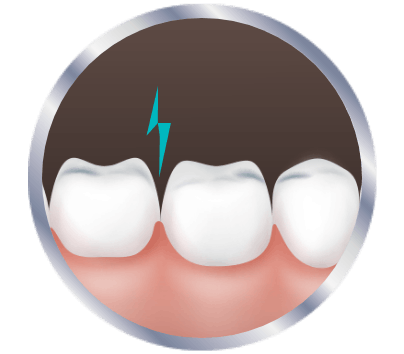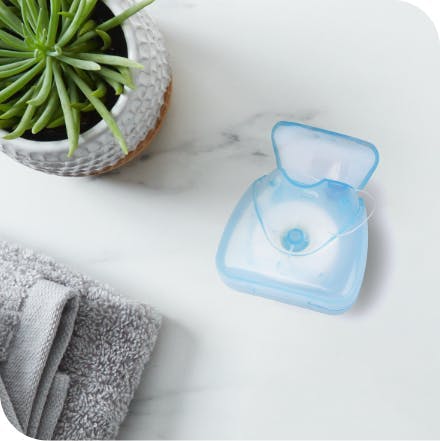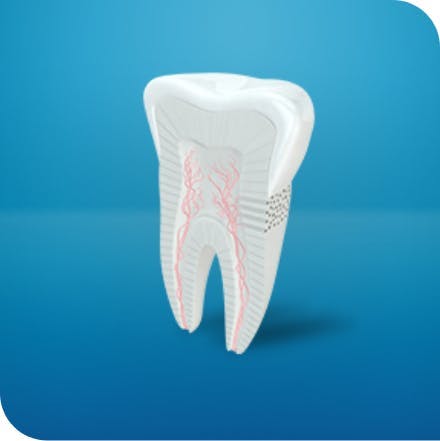Cavities – also known as ‘dental caries’ – are very common. In fact, they affect 92% of American adults aged 20 to 64.i The discomfort and sensitivity caused by cavities can often be mistaken for having sensitive teeth – but there are key differences between cavities and tooth sensitivity.
Keep reading to learn about the differences between cavities and sensitive teeth, and treatment options for both. Remember to speak to your dentist for an official diagnosis.
What It Is

What Is a Cavity?
A cavity is a small hole in the tooth's surface caused by tooth decay. Small cavities can appear as plaque acid – caused by sugary food and drinks – attacks and dissolves your tooth enamel. This leads to decay. Tooth decay is a common problem for both children and adults. The good news is, it’s also preventable with good oral hygiene and regular visits to the dentist.ii

What Is Tooth Sensitivity?
Tooth sensitivity is an ache usually triggered by hot or cold food and drinks, such as ice cream or hot coffee, which stimulate nerves in the teeth due to the exposure of the softer layer underneath your enamel, called dentin. Breathing in cold air, or eating acidic, sweet or sour foods can also be a trigger.iii
What Does
Tooth Discomfort
Feel Like?

Cavity Discomfort
An early-stage cavity may not hurt. As the decay progresses, you may feel a continuous toothache, or sharper occasional sensations that don’t appear to have an obvious cause. Sensitivity to hot, cold, or sweet food and drinks is another common symptom.iv
What Causes It?
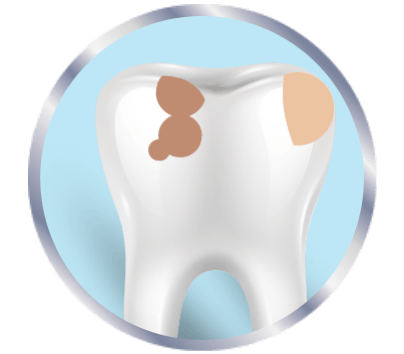
What Causes a Cavity?
Sugary foods and beverages can allow plaque to build up in your mouth. The bacteria in this plaque produce acids that attack your tooth enamel. If not removed through regular brushing and flossing, these acids can eventually begin to break down the tooth's hard, protective enamel layer, causing cavities to form.ii
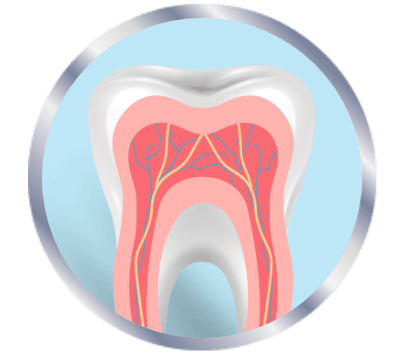
What Causes Tooth Sensitivity?
The two leading causes of tooth sensitivity are enamel wear and gum recession. As enamel is worn down, it exposes the soft, inner part of your tooth – known as dentin – which contains tubules leading to your tooth’s nerves.iii, vi Specific triggers, such as hot and cold drinks or foods, aggravate these nerves causing sensitivity.
How to Treat It
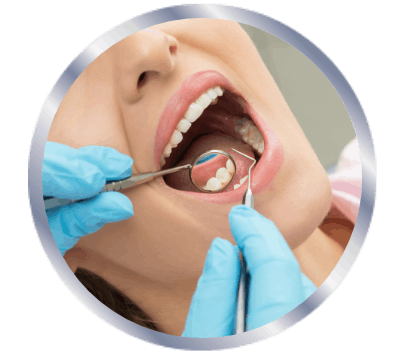
Cavity Treatment
If you suspect you have a cavity, see your dentist as soon as possible to address it. If you do have a cavity, they may put in a filling or crown to fill the hole in your tooth. Other solutions include root canal treatment (if the nerve has been affected), or removing severely decayed teeth. You can help prevent cavities by maintaining good oral hygiene, reducing your intake of sugary food and drinks, and visiting the dentist regularly.iv
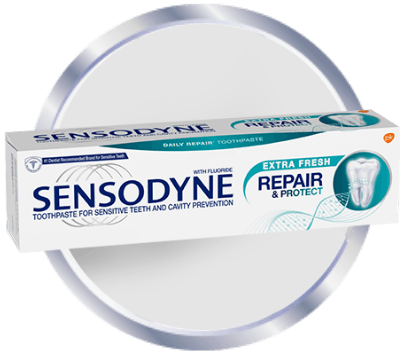
Sensitive Teeth Treatment
Treat tooth sensitivity with proper at-home care. Brush twice-daily with a desensitizing toothpaste such as Sensodyne to get relief from sensitivity. Sensodyne is the number one brand recommended by dentists for sensitive teeth*. Our range of toothpaste has been specially developed to treat tooth sensitivity, as well as helping you maintain healthy teeth.
Find out how Sensodyne can help your sensitive teeth.
*Based on survey results conducted in Singapore
between 3rd July to 20th September 2023
SOURCES
i. Dental Caries (Tooth Decay) in Adults (Age 20 to 64). National Institute of Dental and Craniofacial Research. https://www.nidcr.nih.gov/research/data-statistics/dental-caries/adults. Accessed 09/02/19.
ii. Cavities. Mouth Healthy. https://www.mouthhealthy.org/en/az-topics/c/cavities. Accessed 03/04/20.
iii. Sensitive Teeth: Causes and Treatments. American Dental Association. https://www.ada.org/~/media/ADA/Science%20and%20Research/Files/patient_33.pdf?la=en. Accessed on 28/11/19
iv. Tooth decay. NHS. https://www.nhs.uk/conditions/tooth-decay/. Accessed 03/04/20.
v. Sensitive teeth. Oral Health Foundation. https://www.dentalhealth.org/sensitive-teeth. Accessed 03/04/20.
vi. Tooth. Mouth Healthy. https://www.mouthhealthy.org/en/az-topics/t/tooth. Accessed 03/04/20.

